News
REVEALED! One In Three Nigerian Children Out Of School, Says UNICEF
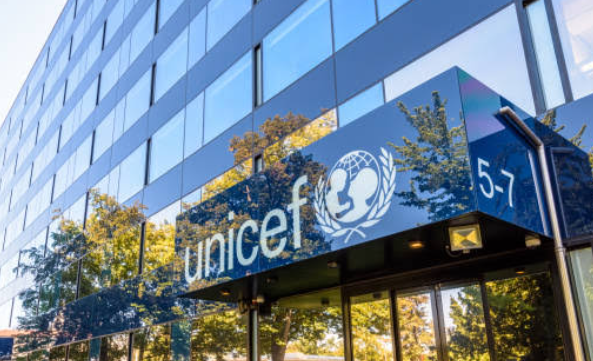
The United Nations International Children’s Emergency Fund (UNICEF) has distributed 2,760 solar-powered radio sets to the Katsina State Universal Basic Education Board (SUBEB) but rued the growing out-of-school children population in Nigeria.
UNICEF handed over the radio sets to Katsina SUBEB for students in the security frontline communities to learn lessons.
In his address during a Media Dialogue on Retention, Transition, and Completion (RTC) and Re-entry Guidelines for Adolescent Girls in the State, the Chief of Field, UNICEF Field Office Kano, Rahama Farah, revealed that Nigeria’s education system is faced with the twin crises of a large and growing out-of-school population and severe learning poverty.
According to him, one in three children is out of school in Nigeria, representing 10.2 million at the primary school level and 8.1 million children at the junior secondary level.
“Nigeria’s education system is faced with the twin crises of a large and growing out-of-school population and severe learning poverty,” he said.
“One in three children are out of school (OOS) (10.2 million at primary school level and 8.1 million children at junior secondary level), and according to the Multiple Indicator Cluster Survey (MICS) 2021, three in four children aged 7-14 years cannot read with understanding or solve a simple mathematics problem”.
Farah said that UNICEF, and partners such as the World Bank, the European Union, and the FCDO have collaborated with AGILE and BESDA projects to support Katsina State and governments in the North-West to reprioritise investments in education and to mitigate against the declining state of education in terms of access, participation and quality of learning outcomes.
“We are all here because our education system is in a crisis; a crisis characterised by a high number of out-of-school children, low attendance and participation rates, low transition rates, low completion rates, poor learning outcomes, and low skills acquisition for children at all levels.
These issues characterising the education system are at the backdrop of high insecurity in the North-West and, Katsina and Zamfara states; low financing to education; poorly resourced schools; low teacher competency levels and high pupil-teacher ratio, among others.
“Together, these factors lead to low overall education attainment, hamper social and economic opportunities for young people, and perpetuate intergenerational cycles of poverty and inequality.
“Stalled progress on Sustainable Development Goal (SDG) 4 will affect regional and global development as Nigeria accounts for the largest global (15 per cent) and regional (33 per cent) share of OOS children.
“Education indicators are the lowest for adolescent girls in the North-east and North-West Nigeria, especially children from poor families and those in rural and security-compromised areas.
In 2021 alone, a least 25 schools were attacked, directly impacting 1,446 learners and 24 personnel. Seventy-six percent of the attacks took place in the Northwest.
“Kaduna was the most frequently attacked (8 out of 25 attacks). Katsina (344 learners) followed by Zamfara states (327 learners) reported the highest number of abductees taken in a single abduction.
“As a precautionary measure, in the 2020/21 academic year, over 11,000 schools were closed for four months, significantly disrupting the education of 1.3 million children.
“The OOS phenomenon is fueled by the growing child population placing significant pressure on the delivery of social services. Yet education financing has not kept pace with a burgeoning demand for education and the high fertility rate.
“Nigeria spends 1.2 per cent of GDP on education, far lower than other African countries and notably lower than the international benchmark of four to six per cent.
“Insufficient domestic financing results in a shortfall of 378,000 classrooms and approximately 278,000 teachers.
“This leads to high student-teacher ratios (e.g., 55:1 at the primary level) and additional pressure on teachers whose capacity is already limited, as 50 per cent of basic education teachers lack the Nigerian Certificate in Education (NCE) or the minimum teaching qualification. What is more, in each workday, 20 per cent of primary school teachers are absent.
“Inadequate and unsafe school infrastructure, poor teaching quality, and low learning outcomes are exacerbated by insecurity and school attacks and compounded by staggering poverty and negative social norms on education, particularly for girls.”
He added, “With regards to Katsina state, the number of Out of School Children has been high (536,122 children) but is progressively reducing over the last eight years from 36.9% in 2016 to 35.5% in 2021 (MICS) and a projected 30% by 2024 if commitments to education and investments are sustained.
“Primary school completion rate in Katsina state averages 62.5% compared to the national average of 73.1% and 56.1% for the northwest respectively. Senior Secondary School Completion rates are low, with only 32 percent of children enrolled completing their education (MICS 2021).
“Although it is important to note that Katsina state has a positive gender parity index of 1 at the primary level, meaning there are nearly equal numbers of girls and boys in primary school, the transition rates can be more encouraging than they are no.
“Transition rate to secondary school in Katsina state stands at 69.5 % lower than the national average of 84% and the northwest average of 70% (MICS 2021) with fewer girls transitioning to secondary school than boys.
“Only 9.2% and 13.3 % of children in Grade 3 were able to demonstrate reading and numeracy skills respectively in Katsina state compared to the national average of 26.8 and 25.3 in reading and numeracy skills.
“I would also like to highlight a few initiatives that the Katsina state government in collaboration with UNICEF and other development partners have put in place to respond to the declining status of education in the state, with some notable positive outcomes.
“Increased financing to education: The Katsina state government has this year increased its state budgetary allocation from 28% to 34%. UNICEF urges that this allocation be matched by release and spending.
“Increase in the number of newly recruited teachers. The Katsina state government has recruited an additional 7,325 teachers in the 2023/24 financial year to mitigate the critical shortage of teachers in the state.
“Provided over 100,000 social cash transfers to keep children from the poorest families in school.
“Enrolled over 123,575 learners, boys, and girls, on the Nigeria Learning Passport platform in the last two years, providing access to alternative learning to many children. This represents 11 per cent of total NLP enrolment in Nigeria.
“Created 500 community learning hubs in 10 frontline LGAs, engaged radio stations to broadcast radio learning programmes, and provided solar radios and memory sticks in support of alternative learning solutions.
“Launched a strategy that provides equal opportunities to all children to enroll, participate, transition, and complete school.
“Created an enabling environment for a second chance education for girls through Re-Entry guidelines that provide opportunities for pregnant and married girls to re-enroll and complete their education.
“UNICEF would like to engage the media as equal partners in education development and ensure that every parent, community leader, traditional leader, and religious leader is aware of the government of Katsina and its partners’ priorities, plans, and urgency to ensure every child has an equal opportunity to enroll, participate, transition, and complete their education in a safe and conducive environment,” he noted.
On his part, the Chairman of the School-Based Management Committee, Chiroma Ingawa, expressed gratitude to UNICEF for their support and interventions over the last three years, stating that the organisation helped education in the state across both the primary and secondary schools.
He therefore assured readiness to support and implement any programme brought by UNICEF to Katsina State.
News
HoR Minority Caucus decries killings in Plateau, Benue states, urges immediate presidential decisive actions
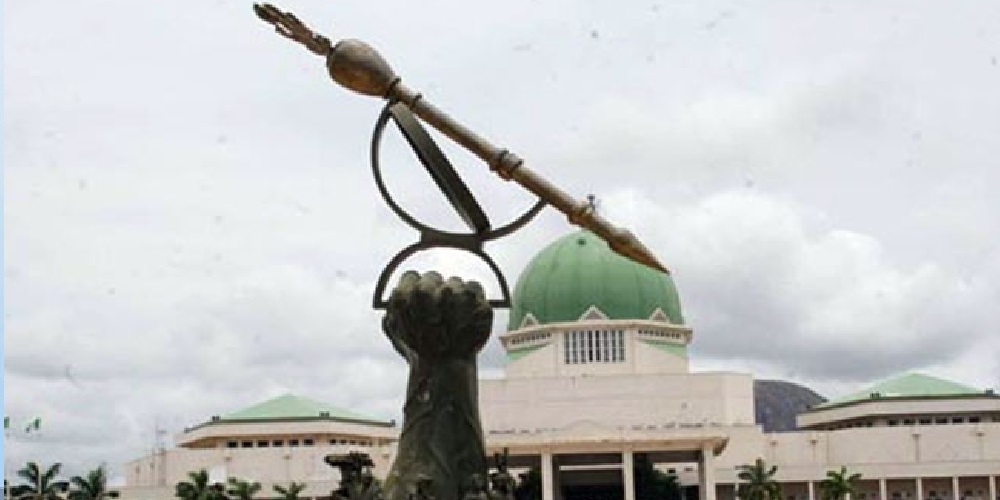
The Minority Caucus in the House of Representatives has expressed serious concerns over killings in Plateau and Benue states demanding immediate presidential decisive actions.
This was contained in a statement jointly signed by leaders of the caucus, Rep Kingsley Chinda, leader, Rt. Hon. (Dr) Ali Isa J.C
Minority Whip ,Rt. Hon. Aliyu Madaki Deputy Minority Leader ,Rt. Hon. George Ozodinobi
Deputy Minority Whip.
The caucus in the statement outrightly condemned the disturbing trend of killings, maiming, and kidnapping of innocent people across the country.
” Following the killings of over 50 people in Bokkos, Plateau state; loss of many lives in twin attacks in Otukpo, Benue state, coming a few days after the Uromi, Edo state unfortunate incident, the Caucus is seriously worried about these growing acts of brigandage and unprovoked attacks on law-abiding citizens.
The Caucus is deeply concerned that with reckless abandon, deliberate disrespect for human lives, and disregard for the constitution of the Federal Republic of Nigeria, these marauders inflict merciless torture, unexplainable pains, and callous killings of helpless, and defenceless Nigerians.
These gruesome murders and the shedding of the blood of innocent lives happening in quick successions in three locations across the country, stands condemnable by every conscionable Nigerian.
The ferociousness and sporadic nature of the vicious actions perpetrated by yet unknown persons remains shocking.
Worried about the dangers this portends to the security of lives and properties of Nigerians; which is the main purpose of government, the Caucus calls on President Bola Tinubu to take deliberate, intentional, and timely decisions towards nipping the disturbing tide in the bud.
Good, he has directed that the perpetrators should be apprehended. However, given the severity of these incidents, and implications on national security, the Caucus urges the president; through the National Security Adviser to ensure that all security agencies embark on comprehensive and strategic collaboration towards arresting those involved in these heinous and gory incidents.
The government should ensure the immediate release of the numerous innocent people that were kidnapped during the dastardly incidents.
The Caucus commiserates with the government, and people of Plateau, and Benue states over the unfortunate incidents. The Caucus also expresses deep condolences to the families of the victims, and pray for the quick release of those kidnapped.
Finally, as a responsive and responsible group of lawmakers, the Caucus promises to pursue legislative actions; where and when necessary towards finding realistic solutions to these negative developments in our country.
News
OERAF held memorial lecture on conflict resolution, security/safety of community in Nigeria
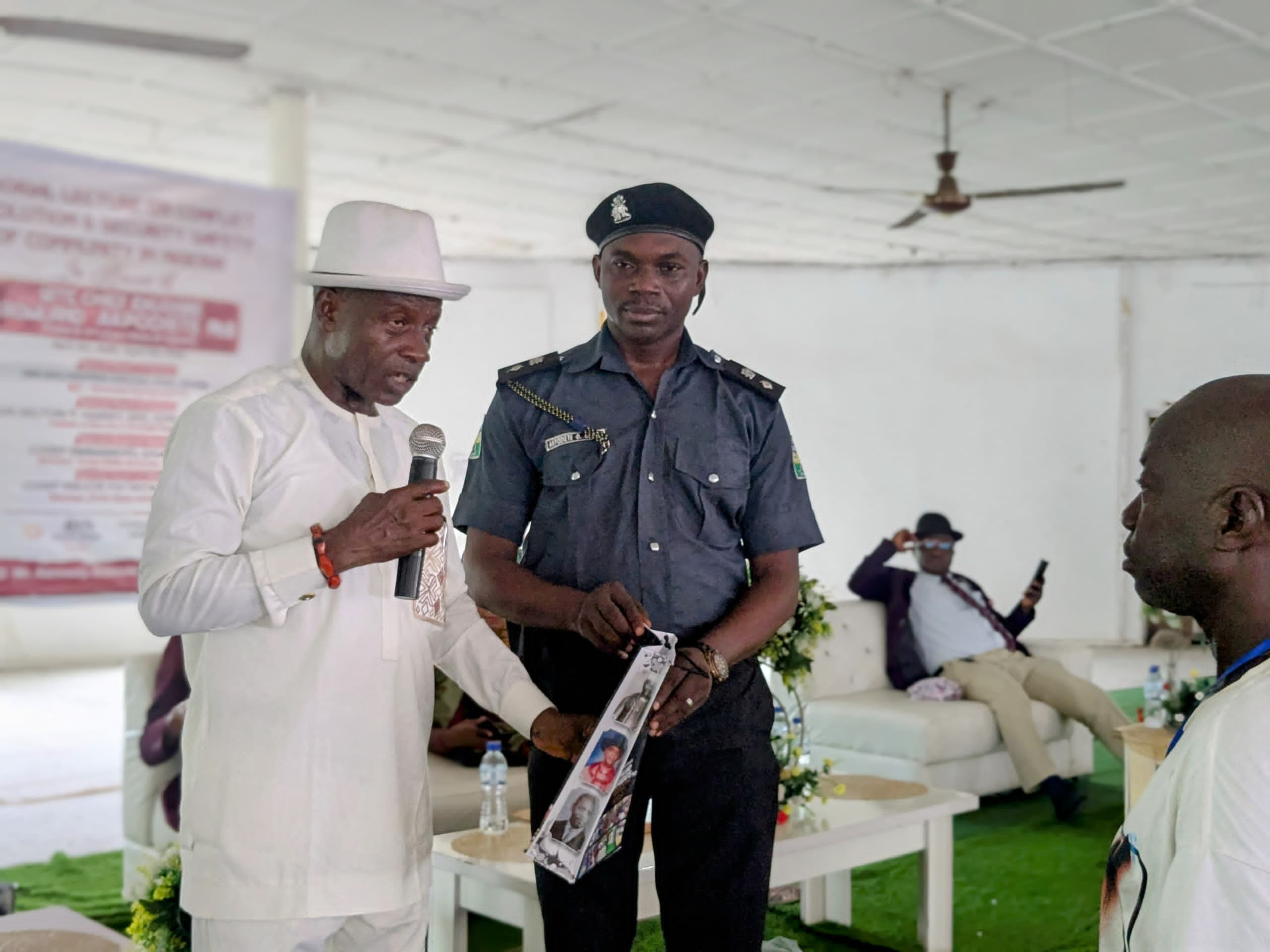
The Olotu and Rowland Ekuogbe Akpodiete Foundation (OERAF) on Tuesday 8th April, 2025 held memorial lecture on conflict resolution and security/safety of community in Nigeria, in honour of late chief Ekuogbe Rowland Akpodiete Ph.D, who was born on April 4th 1924 and passed on April 9th 1995.
The event which took place at the popular Ughelli Kingdom Hall, witnessed several brilliant security experts and government functionalities.
Presenting his brief opening speech, the Executive Director of Olotu and Rowland Ekuogbe Akpodiete Foundation, SPY CSP Olotu Otemu Akpodiete Ph.D (JP) revealed that over the years, the foundation has been touching lives and rendering community impact services across board.
He maintained that his late grand father was a great community leader per excellence and until his death, he was the spoke person (Otota) of the great Ughelli Kingdom. which is why as we celebrate his remembrance, I decided to use the opportunity to impact more lives.” He added.
On his part, the guest speaker of the event, Mr Sylvester Obose, CSS,MNIIS dealt wonderously on the topic.
According to him, Mr Sylvester said the training focuses on the definition, causes of conflict, and dynamics of conflicts.
He further said that the goal was to increase participants knowledge of the concept and study of conflict and conflicts prevention.
He concluded that the safety and security of our community is something that is of paramount importance. By implementing those measures presented to you today, everyone of us stand a better chance of making community safe and secured.
Dr Wilton T. Harry, MIS, CPP,DFCSI,FNIS, also spoke extensively on the same topic during the security training. He posited that the security of lives and properties is a collective responsibility.
The OERAF Executive Director also use the medium to register several others into the Delta State Contributory health insurance scheme.
Dignitaries present during the training were: Olorogun Major Patrick A. Egone Rtd, member Delta State Advisory Council, Chief Emmanuel Ogobene, member Delta State Advisory Council, Mr Edwin Asima, LGSC, Ughelli North Local Government, Chief. Mrs Grace Akpodiete, Deaconess Florence Enughwure, Bar. Agboka Akpodiete- Omale.
Other highlights of the event was the organizing of raffle draws for all the communities present and Ughelli Kingdom VGN, where Erhuwarien Community in Ughelli South LGA and Ekredjebo Community in Ughelli North LGA won security communication gadgets.
News
NLC Warns Abure to Step Aside, Urges LP Members to Be on Standby

By Gloria Ikibah
The Nigeria Labour Congress (NLC) has issued a stern warning to Julius Abure, following the Supreme Court ruling on April 4, 2025, which declared the tenure of Mr. Abure and his National Working Committee (NWC) as expired and no longer legally recognized.
Despite the court’s clear ruling, Mr. Abure has continued to release statements insisting he remains the chairman of the Labour Party (LP). The NLC has strongly condemned his actions, describing them as “an affront” to the rule of law and the authority of Nigeria’s highest court.
In a statement signed by the NLC President, Comrade Joe Ajaero, the Congress accused Abure and his supporters of “crass disdain for decency” and warned that the patience of Nigerian workers and genuine LP members is wearing thin.
“The current affront of Mr. Julius Abure and co-travellers against the law… has convinced those who doubted our earlier position that Mr. Julius Abure and the few miscreants following him have sworn themselves to utter impunity,” the statement read.
The NLC also debunked allegations that it was planning to attack Labour Party offices, calling such claims false and a distraction from the real issue of compliance with the Supreme Court judgment.
“We use this medium to put every Nigerian worker, Labour Party member, and patriotic citizen on alert. We will no longer condone the antics of inconsequential characters like Mr. Julius Abure,” Ajaero said.
He added that the NLC and its allies would not stand by while the rule of law is undermined and urged all genuine members of the Labour Party to prepare to “peacefully repossess all offices of Labour Party nationwide.”
According to the statement, the NLC Political Commission and concerned stakeholders will soon issue directives on how this will be carried out. They also called on security agencies, especially the Nigeria Police and the DSS, to uphold their constitutional responsibilities and support the enforcement of the Supreme Court’s judgment.
The statement also urged the Independent National Electoral Commission (INEC) to fully comply with the court’s ruling by removing all traces of Mr. Abure and his team from its records.
To resolve the current leadership crisis in the Labour Party, the NLC said the remaining institutional members of the party’s National Executive Committee (NEC) are expected to appoint an interim leadership and organize a Special National Convention, as prescribed by the party’s constitution.
“A word is enough for the wise!” Ajaero added.
-
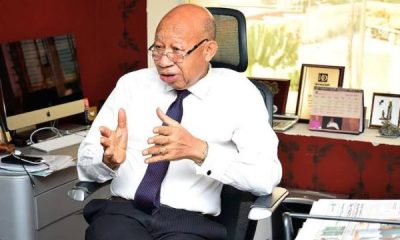
 News14 hours ago
News14 hours agoJust in: Founder of Diamond Bank and ex-chairman of MTN, Paschal Dozie is dead
-

 News4 hours ago
News4 hours agoOERAF held memorial lecture on conflict resolution, security/safety of community in Nigeria
-

 News21 hours ago
News21 hours agoRainfall washes away newly constructed multi-million naira road in Edo State
-

 News21 hours ago
News21 hours agoEvangelist Kekere Jesu buried amidst deep sorrow
-

 News10 hours ago
News10 hours agoTRADE WAR! U.S. angry over Nigeria’s import ban on 25 products
-
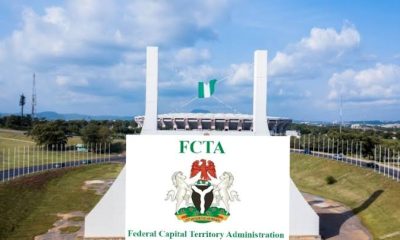
 Metro21 hours ago
Metro21 hours agoStray bullet from VIP convoy kills bystander in Abuja
-

 News15 hours ago
News15 hours agoNaira Nosedives Against Dollar
-

 Sports14 hours ago
Sports14 hours agoReal Madrid keeping tabs on Victor Osimhen






